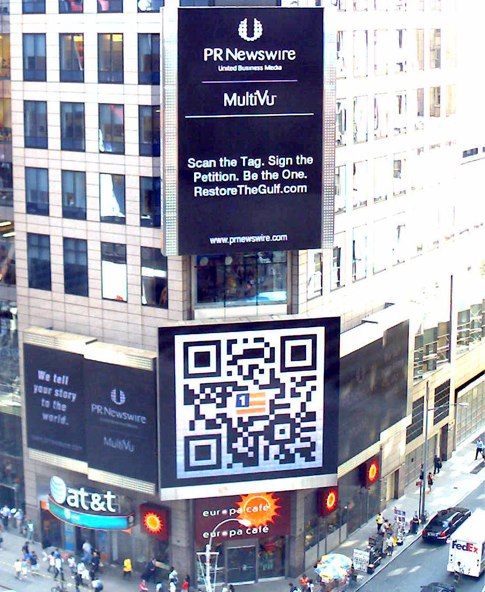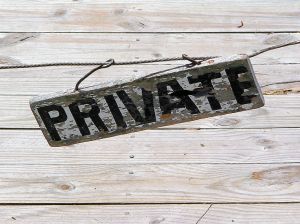Last week, I wrote a post on the Corporate Eye blog about the skyrocketing growth of QR code scanning, and this week, I want to share some more statistics that reveal what consumers want to get when the scan QR codes.
In a survey of smartphone users conducted earlier this year by MGH, 32% of respondents claimed that they have scanned QR codes — a much higher number than previous studies revealed. Furthermore, respondents cited the following reasons why they scan QR codes (via eMarketer):
- To get a coupon, discount or deal = 53%
- To get additional information = 52%
- To enter a sweepstakes = 33%
- To sign up to receive more information = 26%
- To access a video = 24%
- To make a purchase = 23%
- To interact with social media properties = 23%
- Other = 11%
- Don’t know = 2%
But what’s even more interesting in the MGH study is the finding related to what respondents plan to do in the future related to QR codes. 70% of respondents stated that they plan to use a QR code (either again or for the first time) in the future. In terms of future use, respondents cited the following reasons for wanting to scan QR codes in the future:
- To secure a coupon, discount, or deal = 87%
- To enter a sweepstakes = 64%
- To access additional information = 63%
- To make a purchase = 60%
- To sign up to receive more information = 53%
There is no doubt that QR code usage is growing quickly and brands that offer QR code experiences that add value to consumers’ lives are performing best. Today, offering coupons, discounts, contest entries, and deals through QR codes is a viable marketing option that can deliver positive short-term results. In the future, the desire to make purchases through QR codes will undoubtedly grow.
Your business needs to be looking ahead when it comes to QR codes, because this opportunity will evolve very quickly. Start testing now, so you’re not left behind tomorrow. For inspiration, check out the QR code to help clean up the Gulf of Mexico shown below, which was created by ScanLife and added to the Reuters billboard in New York City’s Times Square last summer following the BP oil spill.

And don’t look at QR codes with blinders on. According to the MGH study, 72% of smartphone user respondents stated that they would be likely to recall an ad with a QR code in it. In other words, QR codes can also positively effect advertising recall. Not bad for a little 2-D barcode.
What do you think? Are you using QR codes to market your brand yet? Leave a comment and share your thoughts.
Lucy is Editor at Corporate Eye



Susan,
Thanks for this article (especially the stats).
I think one important thing to note about QR codes (as supported by the info in your post) is that consumers don’t want to scan your QR code to simply be brought to your website home page or contact information (unless that is specifically the expressed intention).
I like your line “don’t look at QR codes with blinders on.” It seems as though too many companies want a QR code because it has the potential to be “the next big thing,” but they don’t think through the reasons. Well-used QR codes can be very effective, but a QR code with no real purpose can actually have a negative effect, but annoying potential customers.
QR Codes (Quick Response Codes) enables quick response to a call for action.
They can be generated and decoded from smartphones and desktops for personal or commercial use.
As shown in your stats, once people understand how to use them, they like the medium and will broaden their usage.
Thanks for this article, it will be useful for information sessions.
the most common of the mobile barcode formats, have not fulfilled their promise and connected with large audiences, according to a new eMarketer report, “QR Codes: Marketers Keep Hitting ‘Go,’ but Consumer Adoption Still Slow.”
The explosive growth of smartphone users in the US means that there will continue to be new consumers who try scanning a barcode at least once, “but ‘one and done’ users do not create a mass audience.”
poorly aligned consumer-brand expectations for mobile barcode-linked content and inadequate user experiences are driving consumers away from mobile barcode use.
http://journalpsyche.org/